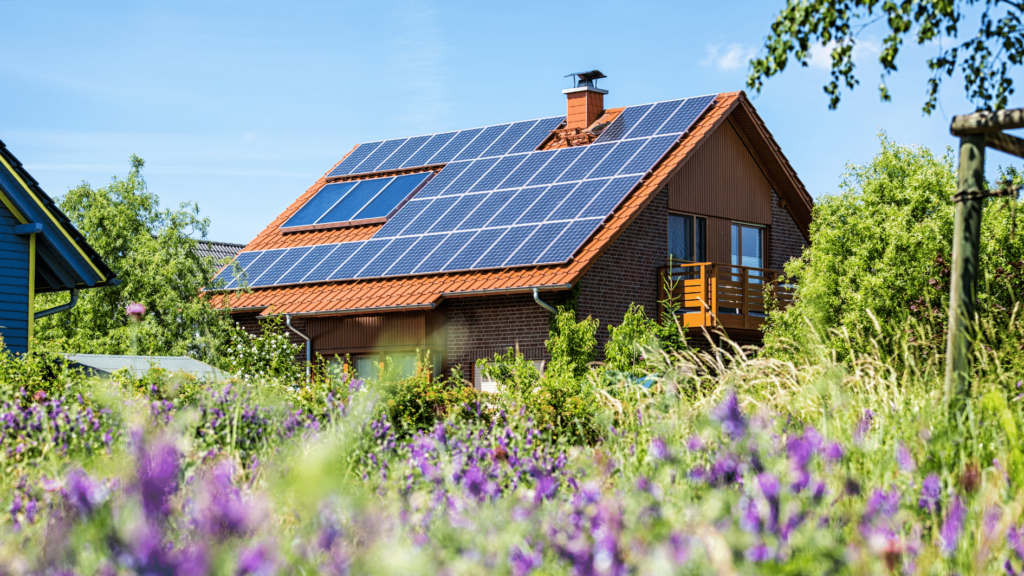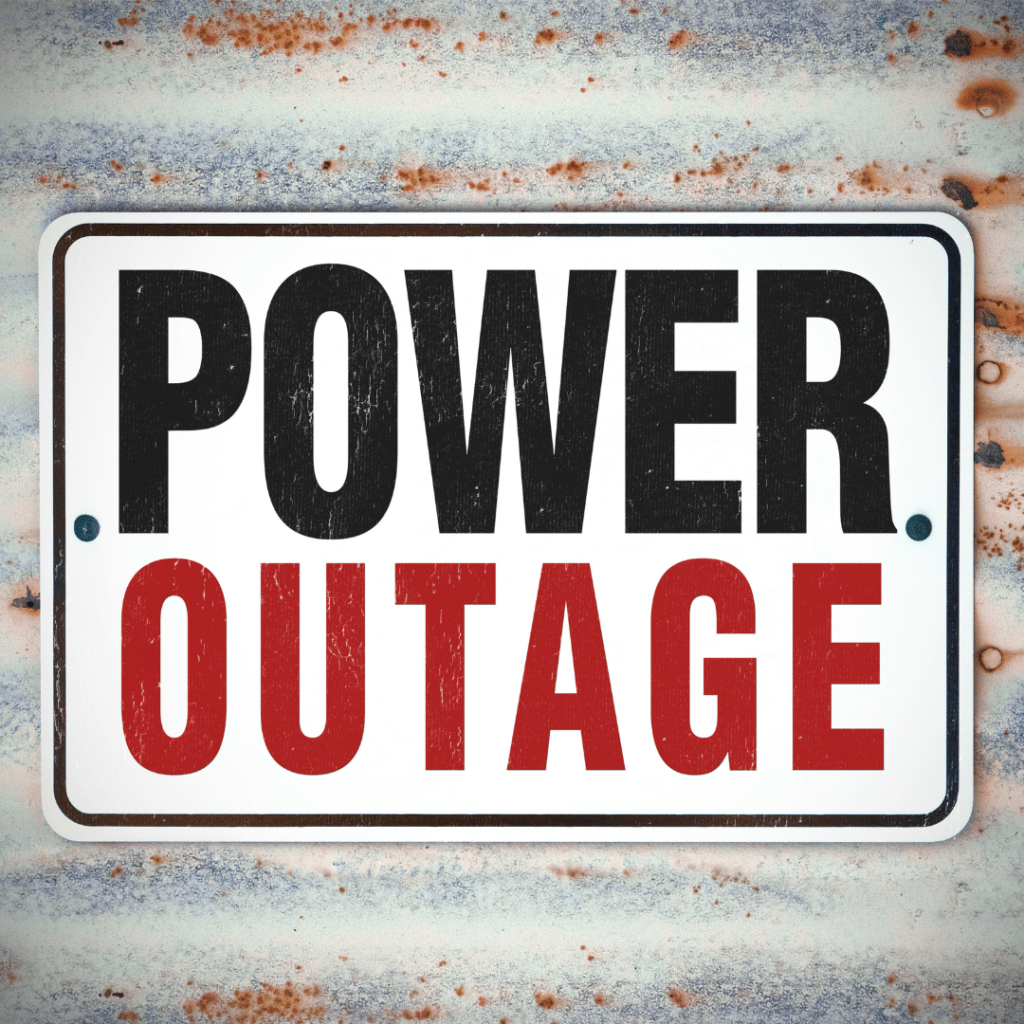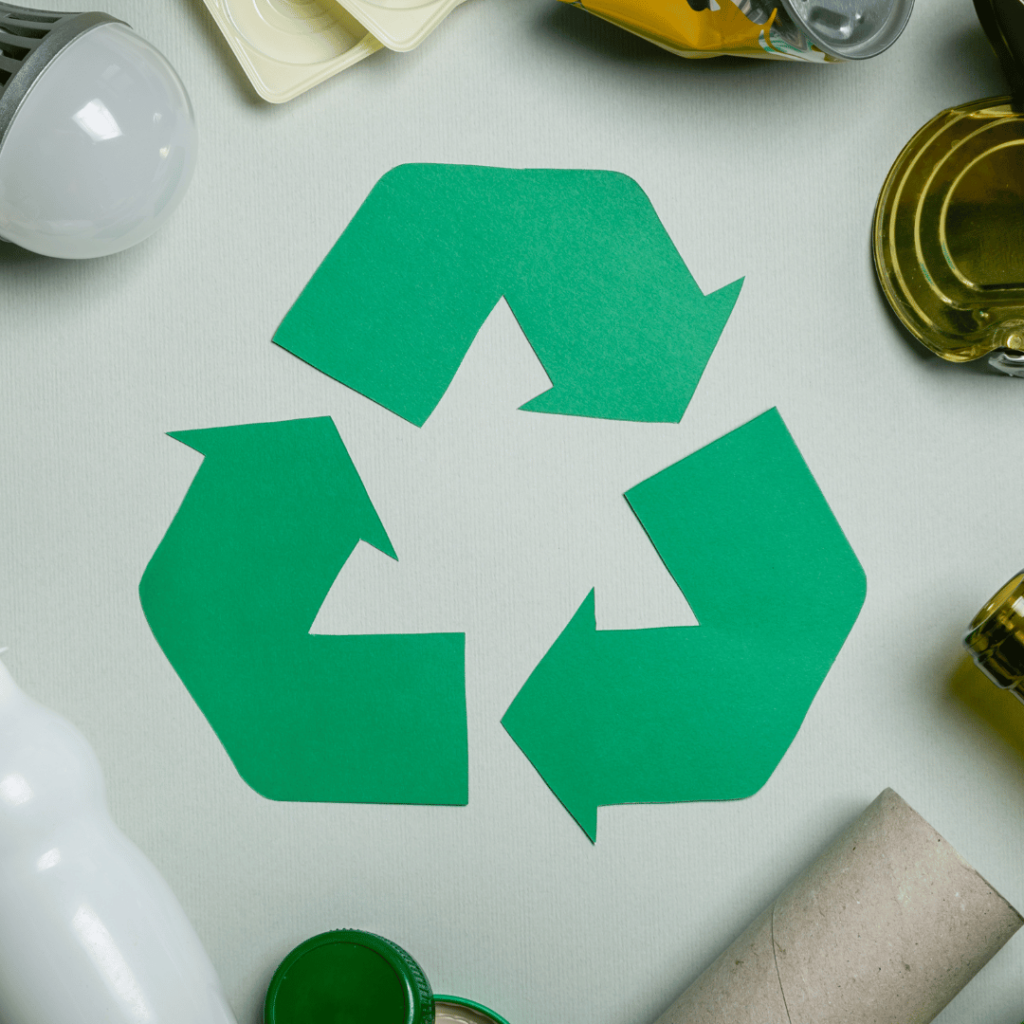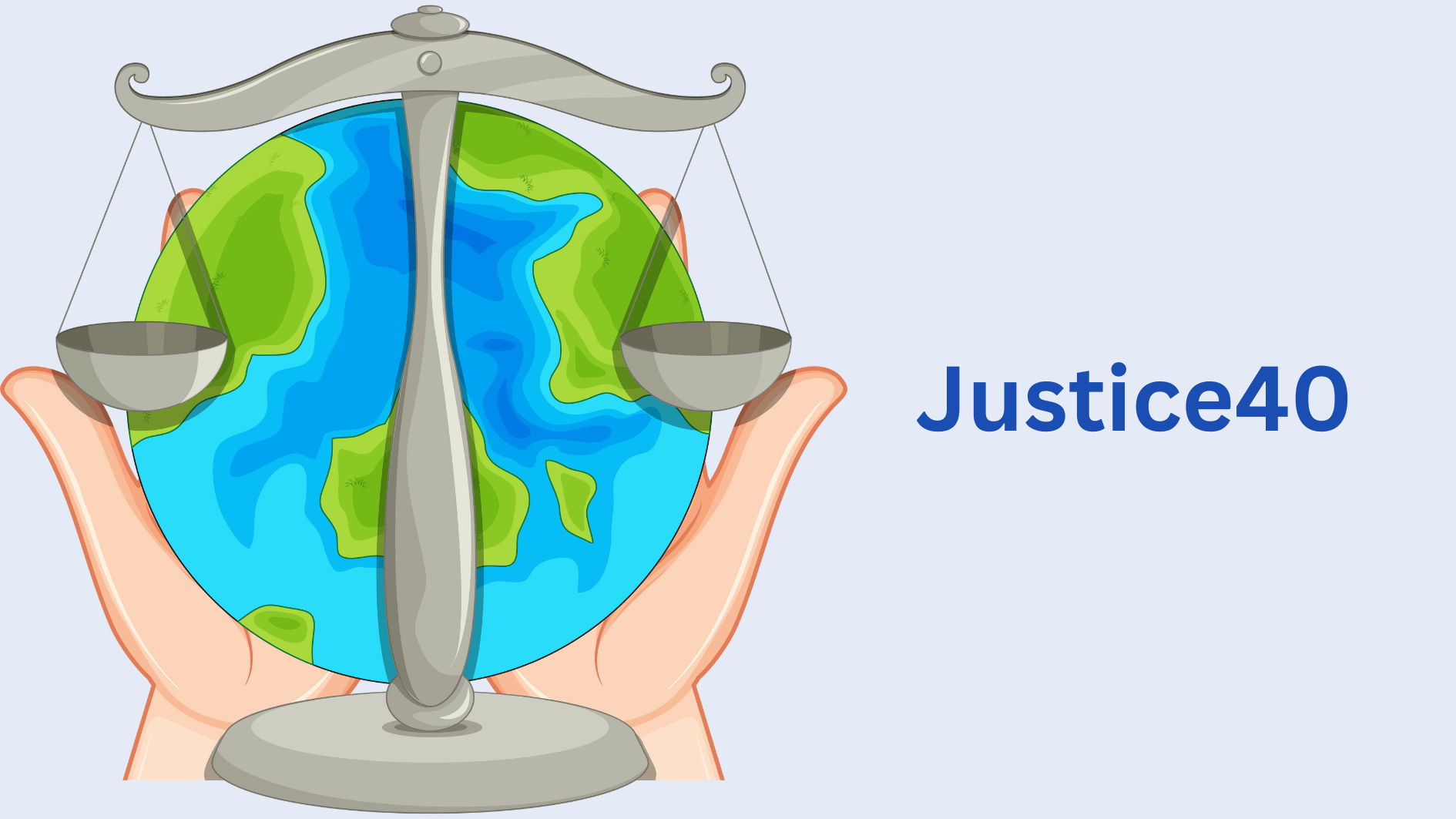Image source: Canva.com
1. Electromagnetic Fields (EMFs): We’ll untangle the web of electromagnetic radiation emitted by photovoltaic solar panels, juxtaposing it with the common RF radiation from power lines.
2. Toxic Chemicals and Materials: Buckle up as we debunk myths surrounding toxic substances in solar panels and their supposed health implications.
3. Solar Panels and Cancer Risk: Brace yourselves as we dismantle fears of solar panels causing cancer, backed by extensive research and studies.
4. Solar vs. Fossil Fuels: It’s a showdown! We’ll examine why solar energy emerges as a safer and greener alternative to traditional fossil fuel sources.
5. From Home to Industry: Explore the wide-ranging applications of solar energy, from cozy residences to industrial-scale production facilities.
6. The Safety Seal: Finally, we’ll deliver the verdict on why solar panels are not just safe but also a smart and effective energy choice.
Busting Solar Energy Myths

As solar panels proliferate on rooftops worldwide, transforming sunlight into clean electricity, questions and concerns about the potential health impacts of this renewable energy source have also been on the rise. However, a closer look at the scientific evidence reveals that many of fears are unfounded. By uncovering the truth behind the misconceptions, we aim to provide a clear, fact-based understanding of the safety and benefits of solar energy. As we transition towards a more sustainable future, it is crucial to dispel misinformation and promote the widespread adoption of clean energy solutions like solar power.
Debunking the myth of costly solar installation
Forget what you’ve heard about solar installation being expensive! In fact, the cost of solar panels has dropped by a whopping 40% in the last decade. Back in 2010, they used to set you back around $40,000, but now you can get residential systems for as low as $10,000 to $25,000 before government tax credits. And here’s the best part: you don’t even need to pay upfront thanks to various financing options available. In fact, the monthly loan payments could be even cheaper than your current electricity bills!
But wait, there’s more! Investing in solar panels isn’t just about the initial cost. They actually help you save money in the long run by reducing your monthly utility bills. So, over time, they offset their own investment. And if that’s not enough, there are government incentives like the federal Investment Tax Credit program that further reduce costs. On top of that, many states and localities offer tax credits, rebates, and specialized programs for low-income households. So, don’t let the myth of costly solar installation hold you back from embracing the power of the sun!
Solar panels have a short lifespan and harm the environment
Don’t be fooled by the myth that solar panels have a short lifespan and harm the environment. The truth is, a well-designed solar system can power your home for decades, saving you money on your monthly bills. With warranties lasting 15-25 years, you can trust that your solar panels will continue to perform long-term. And even after the warranty period, they’ll still be generating energy effectively.
These solar panels are built to last, made with durable materials and protected by tempered glass. They can withstand any weather conditions, from rain and snow to hail and wind. Plus, ongoing innovation in solar technology ensures that they’ll keep producing energy efficiently over time.
Now, let’s address the environmental concerns. Solar panels operate without emitting any air pollution, making them a clean energy source. In fact, they contribute positively to the environment. While there is some reliance on fossil fuels during manufacturing, the overall energy input for producing solar technology is much lower than the energy output generated by the panels throughout their lifespan. And if you’re worried about what happens when they reach the end of their life, don’t fret. There are recycling options available for homeowners, making solar panels even more environmentally sustainable.

Solar energy lacks efficiency
Residential solar panel systems have come a long way in terms of efficiency. Thanks to technological advancements, solar conversion efficiency has greatly improved over time. High-efficiency solar panels are now able to generate more electricity per square foot, making them a popular choice for residential installations.
Modern solar panels typically have conversion efficiencies ranging from 17% to 20%, depending on their type and quality. While this may not seem like much, it’s important to remember that solar panels can only capture specific wavelengths of light, with the rest being reflected. Factors such as weather conditions, panel orientation, and maintenance can also impact overall efficiency.
Despite these challenges, continuous technological improvements have significantly increased the efficiency and reliability of residential solar systems. Homeowners looking to reduce energy costs and minimize their environmental footprint can now turn to solar energy as a cost-effective and sustainable solution.
Solar panels alone can sustain your home during a power outage

Solar panels alone cannot sustain your home during a power outage, contrary to popular belief. Although they do provide some level of energy independence from the grid, they are not designed to solely power your home when the power goes out. To ensure uninterrupted power supply during outages, it is essential to supplement your solar panel system with a battery storage system. By integrating a storage battery into your system, you can maintain power for your home even when the grid is down.
Solar installation poses a risk of roof damage
Solar installation is often misunderstood to pose a risk of roof damage. However, when carried out by skilled professionals, the installation of solar panels and mounting equipment should not cause any harm to your roof. While there is a slight possibility of damage, relying on experienced solar installers significantly reduces this risk.
During the installation process, the solar panels are securely mounted to the rafters of your roof through drilling. Rest assured, these installations are properly sealed to prevent any leaks or harm to your roof.
Before the installation takes place, thorough roof inspections are conducted to evaluate the age, condition, and structural integrity of your roof. The installers prioritize the quality of your roof to ensure the longevity of the solar system, which can last for an impressive 25-30 years. In some cases, homeowners may need to consider roof repairs or replacements after the inspection.
Furthermore, solar panels can serve as a protective shield for your roof, shielding it from direct sunlight, rain, and hail. This added layer of protection potentially extends the lifespan of your roof, providing you with even more benefits in the long run.
Solar panels cannot be recycled

Solar panels are not only environmentally friendly but also recyclable. As the need for sustainable energy grows, the recycling process for solar panels has become more efficient. By separating components like glass, aluminum, and silicon-based photovoltaic cells, valuable materials can be retrieved for reuse. These recycled materials can then be used to create new solar panels or other products, reducing the reliance on raw materials and minimizing environmental impact. There are numerous companies dedicated to solar panel recycling, providing a crucial service to handle the increasing number of retired or damaged panels. Governments and organizations are also taking steps to promote solar panel recycling through regulations and initiatives, ensuring the long-term environmental sustainability of these renewable energy sources.
Solar doesn’t function well in cloudy, rainy, or cold weather
Solar panels are a reliable source of electricity even in cloudy, rainy, or cold weather. While it’s true that their efficiency may decrease in these conditions, they can still generate power. Cloudy weather may reduce sunlight, but rain can actually clean the panels, improving efficiency. In fact, solar panels work even better in cold weather due to enhanced electrical conductivity. To make the most of your solar panels in adverse weather, consider adding more panels, using battery storage, and maintaining them regularly. Adjusting the panel angle and choosing high-efficiency panels can also boost performance in limited sunlight. Despite some ups and downs, solar panels are a sustainable and cost-effective energy solution for homeowners throughout the year.
Solar doesn’t function in northern climates
Despite common belief, solar energy is not limited to only sunny climates. In fact, residential solar systems can function effectively even in northern regions, although there may be some fluctuations in efficiency depending on the season. Factors such as sunlight exposure and the design of the solar panel system play a crucial role in ensuring optimal performance.
While it’s true that northern climates may experience shorter days and weaker sunlight in the winter, modern solar panels are designed to still capture daylight efficiently. In the summer months, these systems can even produce excess energy that can be stored or shared with the grid.
Therefore, it’s important to debunk the myth that solar energy is not suitable for northern climates. By investing in residential solar, homeowners in these regions can not only save on energy costs but also contribute to a more sustainable and eco-friendly future.
The government provides free solar panels

Don’t fall for the myth that the government provides free solar panels. While there are attractive incentives available, such as the Federal Investment Tax Credit, you will still need to cover the costs of your solar panel system. Be cautious of online ads claiming to offer “free” solar panels through government programs, as they are often misleading or fraudulent.
Going solar equals going off the grid
Contrary to common belief, transitioning to solar power doesn’t always mean completely disconnecting from the grid. While some choose to live off-grid, most solar-powered homes remain connected to the grid. Solar energy can actually complement traditional grid power, helping to lower utility costs without the need for complete independence.
Many households are turning to solar power as a way to reduce their energy bills while still enjoying the benefits of grid connectivity. Solar panels can help offset higher energy usage, like charging electric vehicles, without the need to go off-grid.
Off-grid systems are typically used for mobile homes or buildings with low energy needs. However, these setups are limited by the capacity of battery storage, which can be expensive and impractical for larger residential properties.
Empowering change
With solar energy, the power is in your hands—literally! From residential rooftops to sprawling industrial installations, it’s a game-changer for health and the environment. Join the revolution, and together, let’s pave the way to a cleaner, safer future.
Key Takeaways
- Debunking Myths: This article aims to dispel misconceptions surrounding the health effects of solar energy, providing evidence-based insights into its safety and benefits.
- Exploring Various Aspects: It delves into topics like electromagnetic fields, toxic materials, cancer risks, and compares solar energy with fossil fuels, offering a comprehensive understanding.
- Safety Assurance: Reputable solar companies prioritize safety, ensuring high-quality installations and minimizing health risks associated with solar panels.
- Environmental Impact: Solar energy emerges as a greener alternative to fossil fuels, promoting health and environmental wellness with minimal adverse effects.
- Empowerment and Action: By embracing solar energy, individuals can contribute to a cleaner, safer future, both for themselves and the planet.





